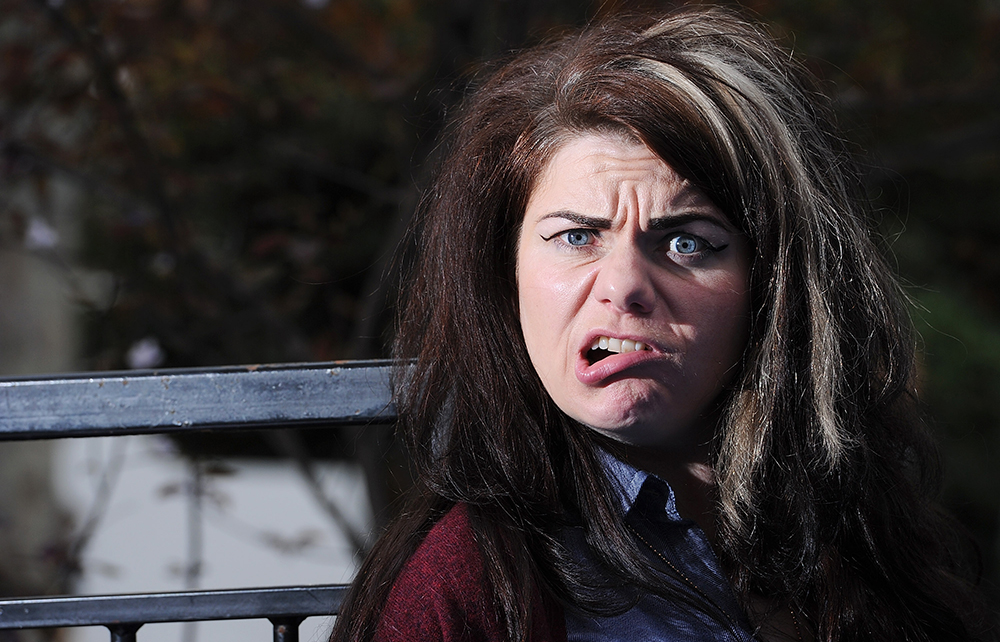I first met Caitlin Moran at Julie Burchill’s flat in Bloomsbury. This was in the early 1990s and she was a precocious teenager who’d written a play and published a few pieces. Julie had asked her to write for the Modern Review, a magazine I co-owned with Julie and her then husband Cosmo Landesman, and Caitlin’s stuff was really good. After that, she became a kind of junior member of our gang and I remember liking her a great deal – she was warm and funny and didn’t seem remotely intimidated by older, more experienced journalists. It was obvious that she was going to have a brilliant career.
I tried to think of something I’d said or done that could have prompted such a visceral hatred – and came up blank
Fast forward about 15 years, by which time we’d lost touch, and I was somewhat taken aback by her reaction to my appearance on a BBC2 discussion programme with Germaine Greer. As the two of us duelled away, Caitlin shared her feelings about me on Twitter. My ability to irritate, she said, was so reliable it ‘could be used to power an atomic clock’. She continued: ‘Oh, Germaine Greer. You’re still MAGNIFICENT. Please end this brilliant monologue by running a sword through Toby Young’s face.’
I joked about this at the time, particularly when Caitlin raised the alarm in a hand-wringing, deeply concerned way about how often women are threatened with violence on Twitter. She campaigned for a ‘report abuse’ button on the platform and launched a ‘boycott Twitter’ day in 2013 because of its failure to deal with offensive comments directed at journalists and politicians. Talk about hypocrisy! If she thought users should be banned from social media for encouraging people to assault those with whom they disagreed, shouldn’t she start with herself?
But the truth is, I was quite upset. I racked my brain, trying to think of something I’d said or done to her that could have prompted such a visceral hatred – and came up blank. On the contrary, I could only remember behaving decently to her when she worked for the Modern Review, always trying to be encouraging, telling her she was going to go far, etc. Since those days, I’d looked at her burgeoning career with a kind of paternal pride. I knew her politics were different from mine, but I didn’t let that colour how I felt about her. I was pleased she’d become so successful. So her comments cut me to the quick.
The only explanation I could come up with is that sending the right signals to her political tribe – saying something she knew they’d approve of – trumped any other considerations. She was just joining in the chorus of abuse I routinely get on Twitter, without giving a thought to how it might make me feel. Our little scrap of shared history, which I looked back on so fondly, meant nothing to her.
I find it a bit embarrassing to talk about this, but I’ve been reading Caitlin’s new book – What About Men? – and the advice she gives to the opposite sex is to talk more about our feelings. Like Prince Harry, she believes men are in the throes of a ‘crisis’ that’s rooted in our unwillingness to talk about our vulnerabilities, ideally accompanied by floods of tears. The rot starts in the playground, apparently, and she quotes approvingly from a book called Why Does Patriarchy Exist? by Carol Gilligan and Naomi Snider. She summarises their analysis as follows: ‘Boys being put in a “masculine” environment – say, a school with hundreds of other boys, many of them older – quickly learn they must hide “their tenderness, their empathy, their vulnerability”, as it will not be responded to positively. Or at all. No hugging, no crying, no fear.’
Having wheeled out this cliché, she then ignores her own advice by ridiculing Jordan Peterson for crying on a podcast with Russell Brand. Crying is marvellous, she emphasises, but can you imagine how a successful woman would be treated if she cried at work? In any event, she says, what does he have to cry about? She contrasts his difficulties with those faced by notable female public figures she met with shortly after listening to the podcast: ‘All have had rape and death threats: two have panic buttons in their houses. One has never even mentioned she has children – as the police told her there was the very real possibility that, if the knowledge became public, there would be threats made against the children’s schools.’
Encouraging men to cry, only to accuse them of being crybabies, is typical of the book. Caitlin purports to be in earnest about helping men with their problems, but cannot resist scoring points at their expense. Anything for a laugh, or a nod of approval from a fan – as with her comments about me. Maybe I’m a bitter old man, but I expected more from that witty teenager who so impressed me 30 years ago.
The Spectator’s literary editor Sam Leith interviews Caitlin Moran on this week’s episode of The Book Club.







Comments